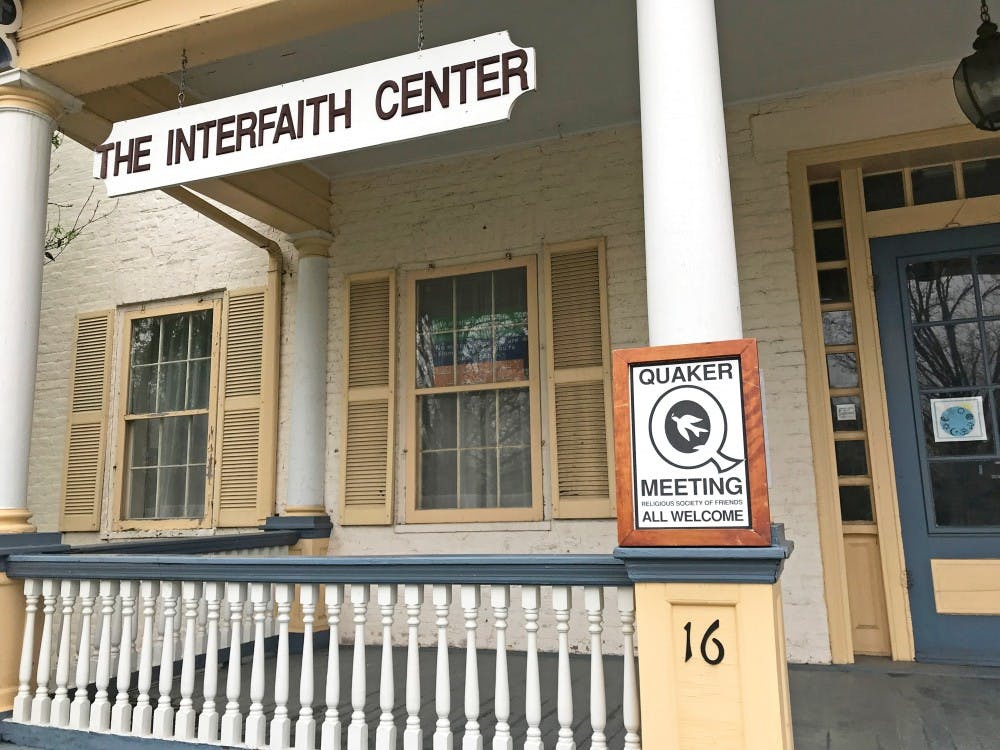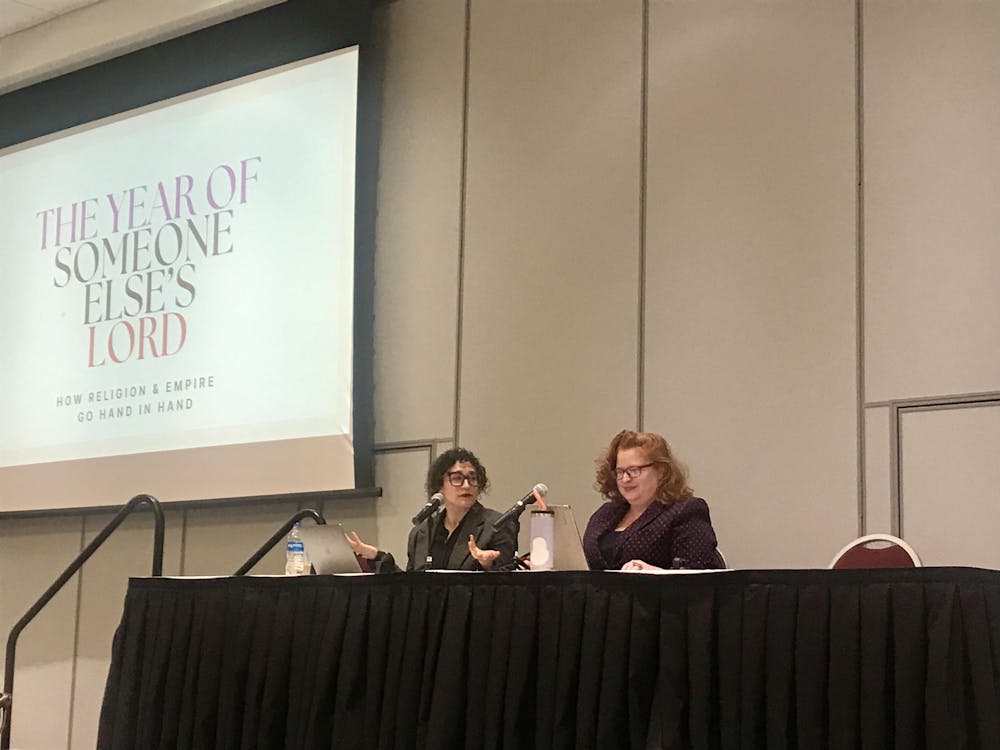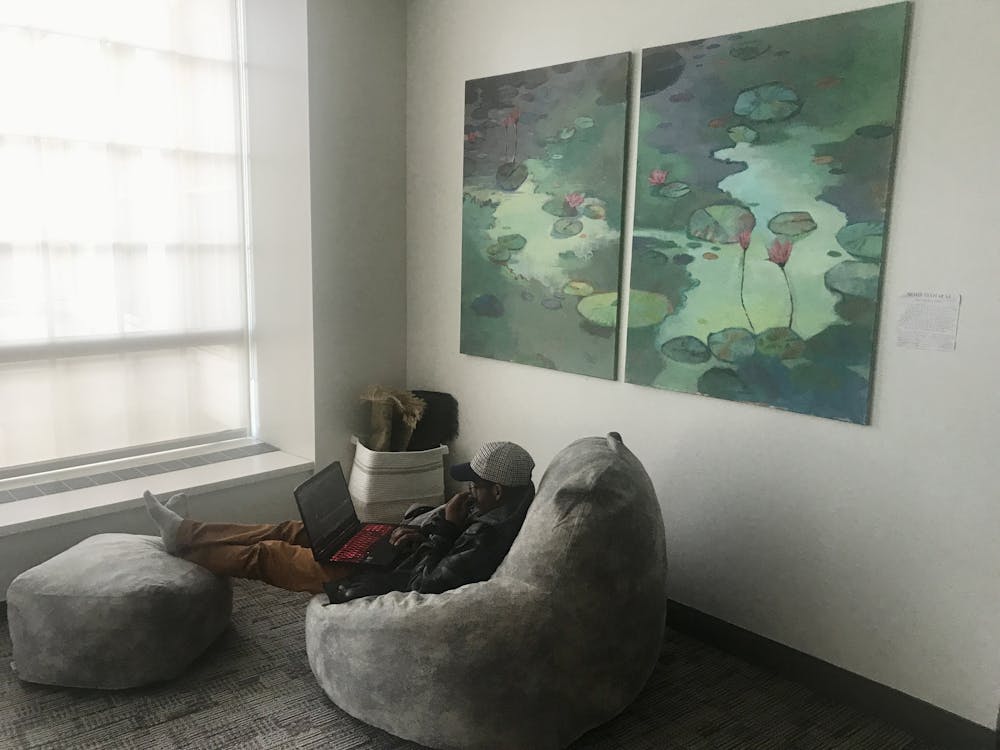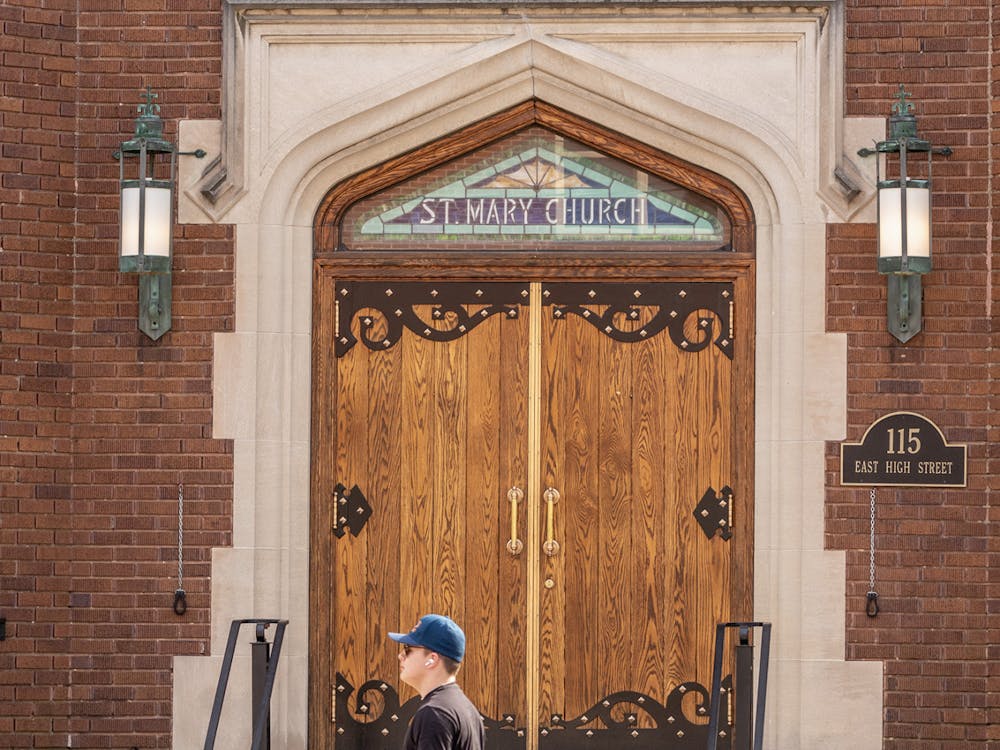As one might suspect from the Religious Society of Friends, the Oxford Quakers were incredibly friendly when I visited their Sunday worship meeting.
The "church" was a ring of eclectic furniture inside the Interfaith Center: odd wicker chairs that resembled nests, cushioned folding chairs and two sizable squashy couches. In the center of the circle sat a coffee table with a Bible.
In true guilty-Catholic form, I selected a folding chair.
The first hour of a Quaker meeting is spent in silence. The idea is that participants meditate in the silence and listen for the Divine Spirit or the light of God, a force that goes by different names that can be particular to individual Quakers. If the spirit calls to an individual during the meeting, they will speak or read or pray aloud.
This only happened once at the meeting I attended, when long-time Oxford Friend Cecilia Shore stood up. She said she had been thinking a great deal about the U2 song "Grace" in the past week, and read aloud some of the lyrics.
"What once was hurt/ What once was friction
What left a mark/No longer stings
Because Grace makes beauty/ Out of ugly things"
The lyrics were punctuated with murmurs of agreement from the other Friends, and then we lapsed back into the silence.
It stretched on until the week's designated Head of the meeting signaled the end of worship by shaking hands with everyone in the circle. The hour after worship is for conducting business. This week, the Friends discussed the yet-to-be released 2019 statement from the Friends Committee on National Legislation, which is basically a lobbying organization on behalf of the approximately 76,360 U.S. Quakers.
I visited the Oxford Friends meeting out of a curiosity to see faith beyond the Catholic masses that bookended the weeks of my childhood.
"What do you get out of the silence?" I asked Shore after the business had concluded.
Enjoy what you're reading?
Signup for our newsletter
"There's a different answer for everyone," she said. "Some people, especially busy people, really appreciate the opportunity to be in silence, and a silence that is warm and welcoming. No one is expecting something of them. They find it an oasis in their week."
Shore explained that some participants spend the time in prayer, going around the circle of Friends and offering prayers for each one. Some use it for mindfulness practice or journaling.
"People ask 'Why do I need to do this in a group? I can meditate in my dorm room.' But we believe that, kind of like a prism, each person refracts the light of God differently so you're able to see that in a group," Shore said.
This idea that the light of God is inside everyone is the Quakers' central belief. Though the religion is traditionally associated with Christianity, Friends can come from a myriad of faith and philosophy backgrounds.
Shore was raised a Southern Baptist and her husband an Episcopalian. They met in graduate school and began going to meetings together. They were married under the care of a Quaker group. There is no officiant at a Quaker wedding because they believe only the Divine Spirit can marry a couple, and this works through the members of a meeting.
The variety of religious backgrounds means that the Friends' beliefs are not always homogenous when it comes to sacred texts and the afterlife. Many Friends read the Bible, but largely they believe the word of God should come from within, not from books or rituals. Similarly, the Friends focus on their experience of heaven in their lives today, and believe that what comes after death is for our good.
I left the meeting with a slice of carrot bread and sense of peace.




